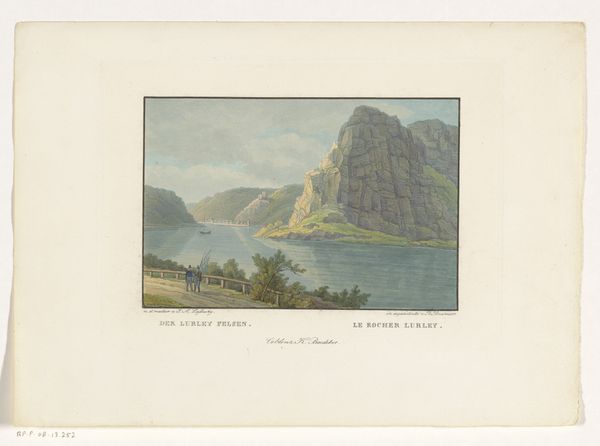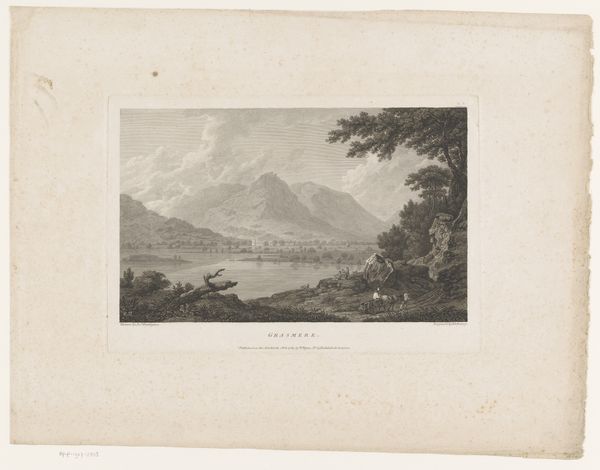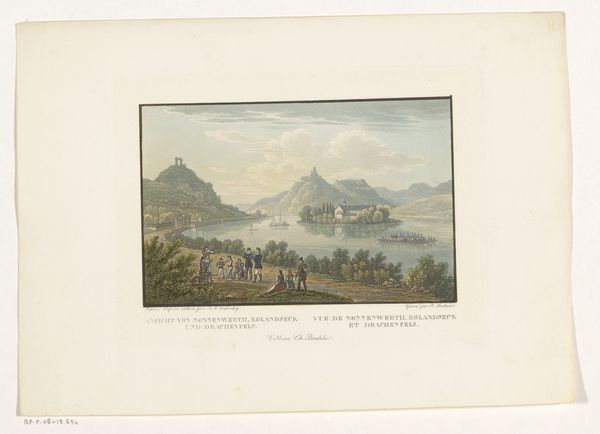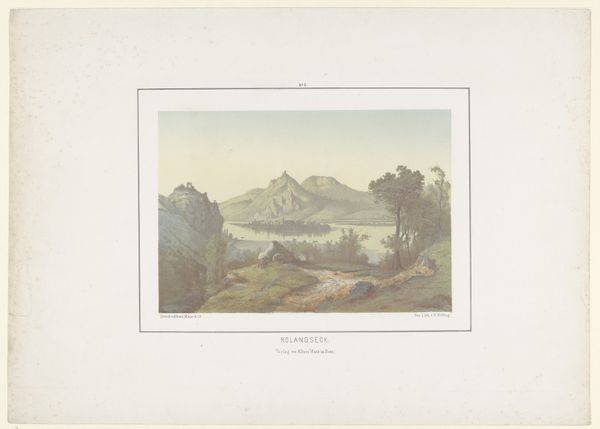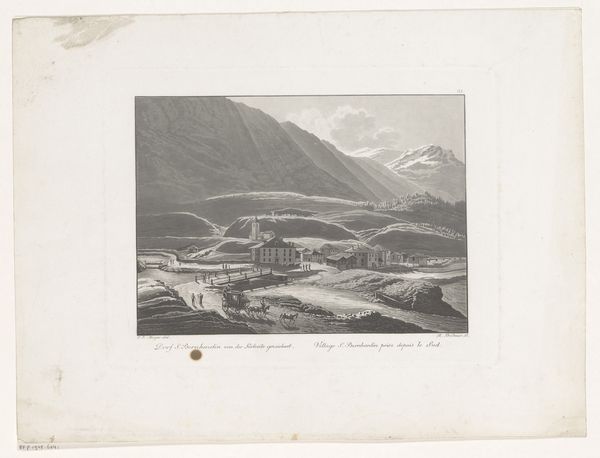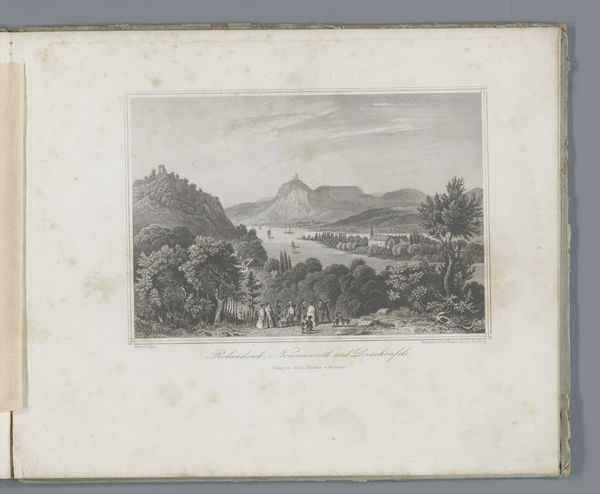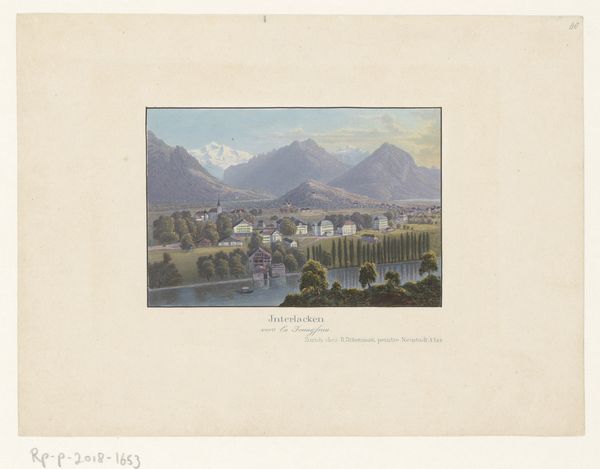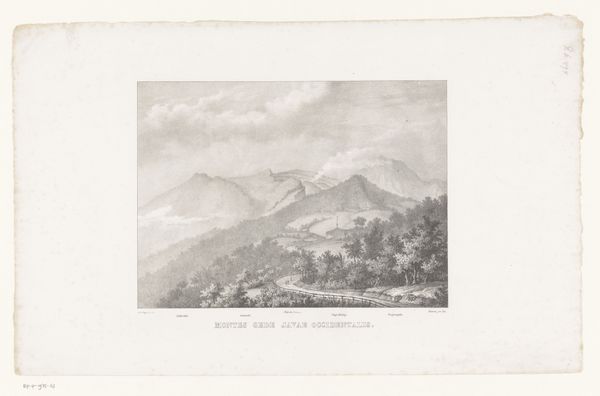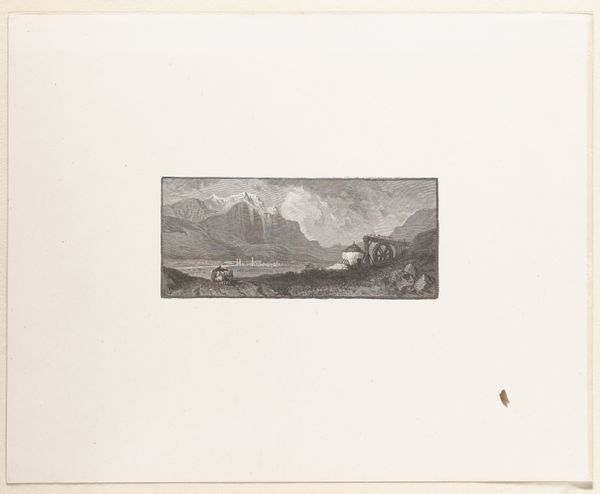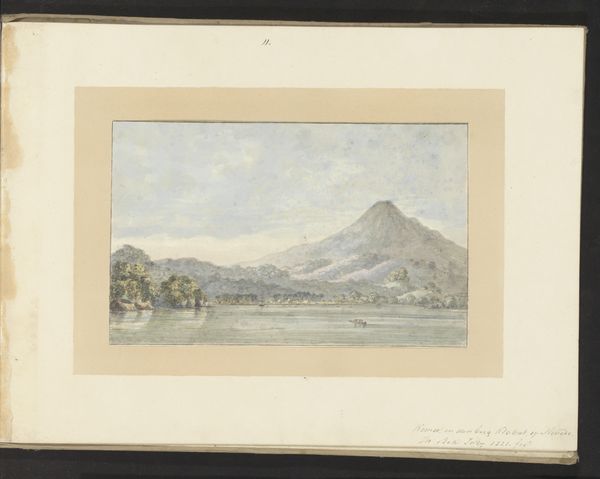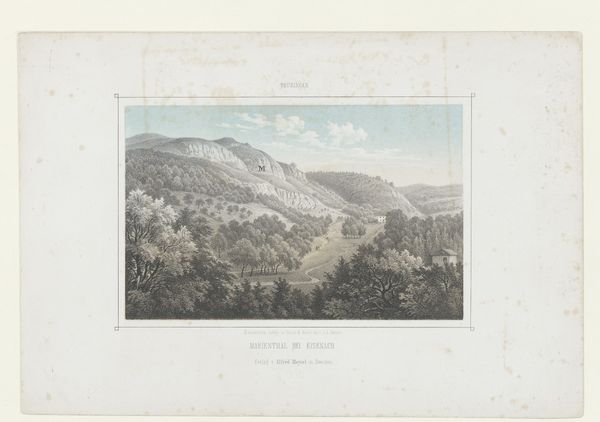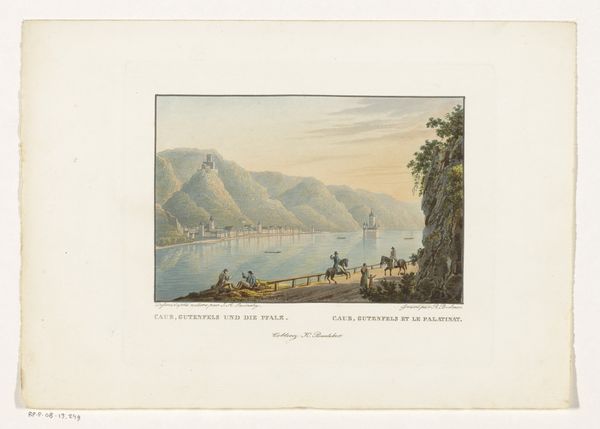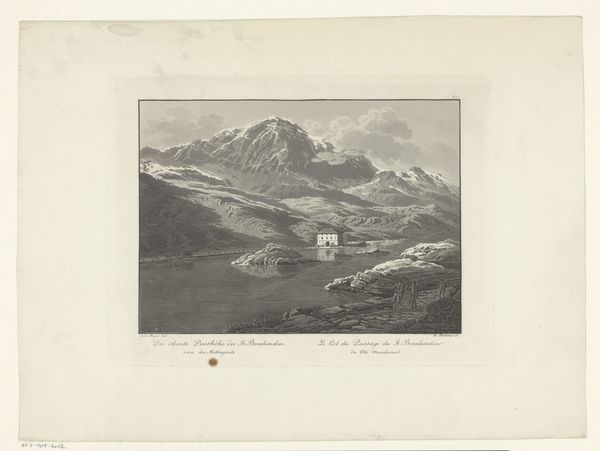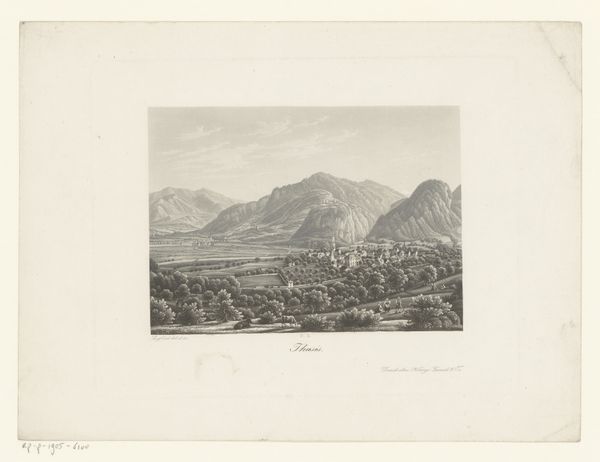
Dimensions: height 132 mm, width 160 mm
Copyright: Rijks Museum: Open Domain
Rudolf Bodmer made this print of the Siebengebirge, or Seven Mountains, sometime before his death in 1841. It presents us with an idealized vision of the German landscape. But it is also worth asking: what are the social and cultural functions of such imagery? This carefully composed vista invites us to imagine an orderly world, where nature is tamed, and where the social hierarchy – represented by the figures in the foreground looking down on the village below – is both natural and benevolent. This image was produced at a time when the rise of Romanticism and nationalism were encouraging Germans to look to their own landscape and history for inspiration. Prints like this would have circulated widely, helping to shape a sense of shared identity and belonging. The Art historian can help us to understand the power of such images by exploring the cultural and political contexts in which they were produced and consumed. Through sources like periodicals, exhibition catalogues, and other printed matter we can learn more about the place of such views of the Siebengebirge in nineteenth-century visual culture.
Comments
No comments
Be the first to comment and join the conversation on the ultimate creative platform.
